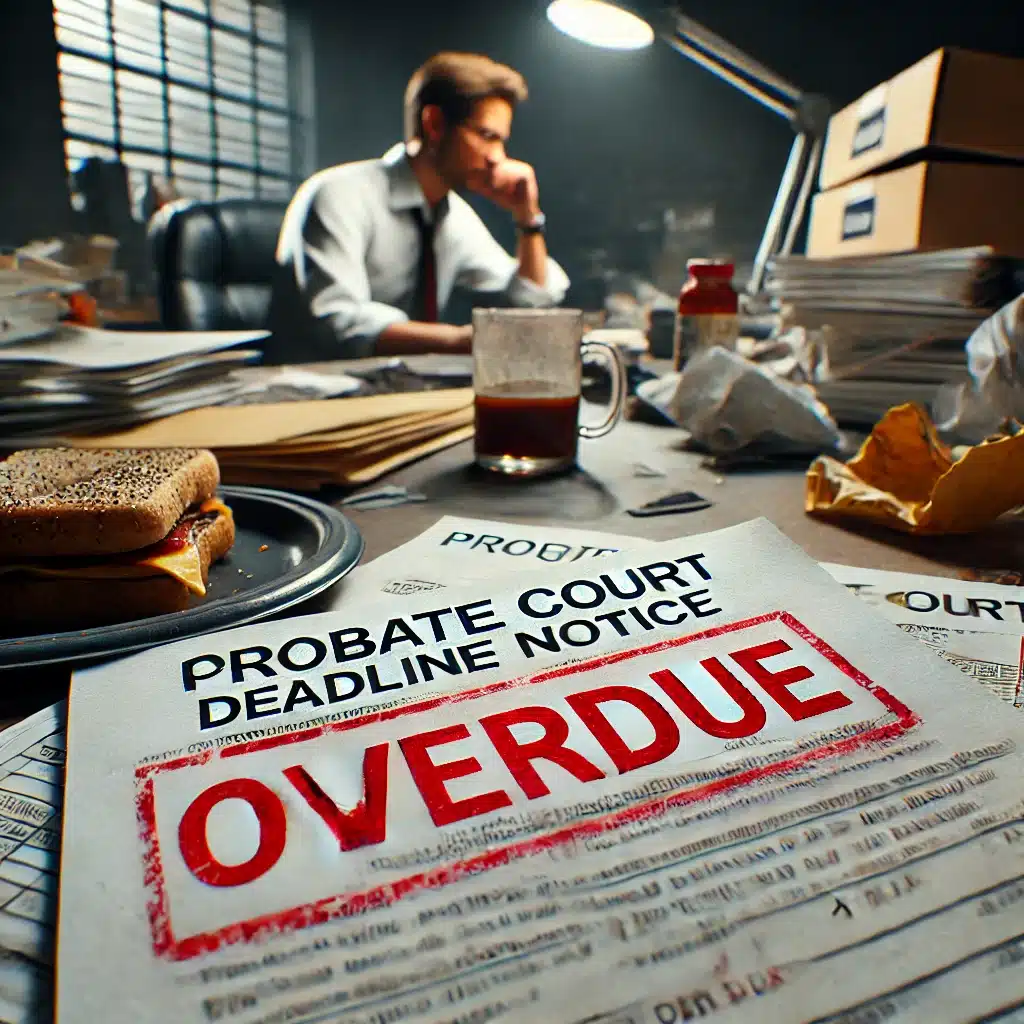
When it comes to probate court proceedings in Tarrant County, Texas, lawyer ethics violations can have serious consequences for both the attorney and the families involved. This article will delve into what constitutes lawyer ethics violations in this context, the implications for all parties, how it affects the probate process, potential penalties, and other related topics.
Understanding Lawyer Ethics Violations in Tarrant County Probate Court
Lawyer ethics violations in Tarrant County probate court refer to instances where attorneys fail to adhere to the professional and ethical standards set forth by the State Bar of Texas and the Texas Disciplinary Rules of Professional Conduct. These rules govern the behavior and responsibilities of lawyers practicing in the state, including those handling probate matters in Tarrant County.
Common ethics violations in probate court may include:
- Conflict of interest: Representing clients with opposing interests without proper disclosure or consent
- Mishandling of client funds: Commingling personal and client funds or misappropriating estate assets
- Lack of communication: Failing to keep clients informed about the status of their case or respond to inquiries in a timely manner
- Incompetence: Handling probate matters without the necessary knowledge or skill
- Misrepresentation: Providing false or misleading information to the court or clients
Other potential ethics violations may involve:
- Breaching client confidentiality
- Engaging in fraudulent or deceptive practices
- Neglecting client matters or missing important deadlines
- Charging excessive or unreasonable fees
- Failing to return client property or provide proper accounting
Implications for Lawyers and Families
The consequences of lawyer ethics violations in Tarrant County probate court can be severe for both the attorney and the families they represent. For lawyers, disciplinary actions may include:
- Public reprimand
- Suspension of their law license
- Disbarment in extreme cases
- Monetary fines and restitution
- Loss of reputation and future business
- Malpractice lawsuits and personal liability
Families who have been victims of lawyer ethics violations may experience:
- Delays in the probate process
- Increased legal expenses to address the violation and find new representation
- Emotional distress and loss of trust in the legal system
- Potential loss of inheritance or estate assets due to mismanagement or misappropriation
- Need to restart the probate process with new counsel
- Family conflicts and disagreements over how to proceed
Impact on the Probate Process
When a lawyer commits an ethics violation during a probate case in Tarrant County, it can significantly disrupt the entire process. Depending on the nature and severity of the violation, the court may need to:
- Remove the attorney from the case
- Appoint new representation for the affected parties
- Investigate the extent of the violation and its impact on the estate
- Reexamine previous court filings and decisions for potential errors or fraud
- Extend deadlines and reschedule hearings to accommodate the changes
- Order the return of misappropriated funds or property
- Sanction the attorney and refer the matter to disciplinary authorities
These actions can lead to substantial delays, increased costs, and added stress for families already navigating the complex and emotional probate process. In some cases, the violations may be so severe that they jeopardize the entire estate and the beneficiaries’ inheritances.
Case Studies: Real-Life Examples of Probate Lawyer Ethics Violations
Here’s a breakdown of common ethical violations with Texas examples:
1. Neglect and Lack of Diligence (Rule 1.01 – Competent and Diligent Representation)
- Rule Summary: Lawyers must act with competence, commitment, and dedication to their clients’ interests. They must handle matters promptly and diligently. This includes keeping clients reasonably informed and responding to requests for information.
- Example: A common scenario involves an attorney taking on a probate case, failing to file necessary documents (like an inventory, appraisement, and list of claims), missing deadlines, failing to communicate with the client about the case’s status, and essentially allowing the probate to languish. This often results in a “Public Reprimand” or “Suspension” from the State Bar. Look for disciplinary actions on the State Bar of Texas website under “Attorney Discipline.” Search terms like “neglect,” “failure to communicate,” and “probate” will yield relevant results. The specific case names are often redacted or summarized, but the patterns are clear.
2. Failure to Communicate (Rule 1.03 – Communication)
- Rule Summary: Lawyers must keep clients reasonably informed about the status of their matters and promptly comply with reasonable requests for information.
- Example: An attorney is hired to handle the probate of an estate. The client repeatedly calls and emails the attorney, asking for updates on the case, but the attorney fails to respond for months. The client eventually files a grievance with the State Bar. This is a very common violation and is often coupled with neglect (Rule 1.01). Again, searching the State Bar of Texas disciplinary actions is the best resource.
3. Misappropriation of Client Funds (Rule 1.14 – Safekeeping Property)
- Rule Summary: Lawyers must hold client funds and property separately from their own. They must maintain complete records and promptly deliver any funds or property the client is entitled to receive. Mishandling of estate funds is a serious violation.
- Example (Highly Specific, Public Record): In re: The Disbarment of John O’Quinn, This is an older, but very prominent case. Although famous for other areas of law, O’Quinn was disbarred, in part, for actions taken regarding settlement funds. There are detailed news articles available via online search. While not strictly a probate case the principle of holding client funds separate is key.
4. Conflicts of Interest (Rule 1.06 – Conflict of Interest: General Rule; Rule 1.07 – Conflict of Interest: Intermediary; Rule 1.08 – Conflict of Interest: Prohibited Transactions)
- Rule Summary: Lawyers must avoid representing clients when a conflict of interest exists. This can involve representing multiple clients with adverse interests, representing a client when the lawyer’s personal interests are adverse, or entering into business transactions with clients under unfair terms.
- Example: An attorney represents the executor of an estate. The attorney also represents a beneficiary of the estate who is disputing the terms of the will. This creates a clear conflict of interest, as the attorney cannot adequately represent the interests of both the executor (who has a duty to uphold the will) and the contesting beneficiary.
5. Charging Unreasonable Fees (Rule 1.04 – Fees)
- Rule Summary: Lawyers cannot charge or collect an unconscionable fee. The fee must be reasonable considering factors like time, labor, complexity, and the lawyer’s experience.
- Example (Illustrative): An attorney charges an extremely high hourly rate for routine probate work that requires minimal effort and expertise. The attorney also bills for excessive hours that are not justified by the work performed. The client disputes the fee, and the matter may be resolved through fee arbitration or a lawsuit.
6. Failure to Supervise Non-Lawyer Staff (Rule 5.03 – Responsibilities Regarding Non-lawyer Assistants):
* Rule Summary: Lawyers must supervise those that work under them, this includes, paralegals and secretaries.
* Example: Commission for Lawyer Discipline v. Melanie A. F, Adame, 2021-04108. The respondent failed to supervise her non-lawyer.
Reporting and Addressing Lawyer Ethics Violations
If a client or interested party suspects their attorney has committed an ethics violation in a Tarrant County probate case, they should:
- Document the suspected violation with any relevant evidence
- File a complaint with the State Bar of Texas’ Office of Chief Disciplinary Counsel
- Inform the probate court of the alleged violation
- Consider seeking new legal representation to protect their interests
The State Bar of Texas will investigate the complaint and determine if disciplinary action is warranted. The probate court may also take steps to address the violation and ensure the integrity of the proceedings.
Preventing Lawyer Ethics Violations
To minimize the risk of ethics violations in Tarrant County probate cases, lawyers should:
- Regularly review and adhere to the Texas Disciplinary Rules of Professional Conduct
- Maintain clear communication with clients and the court
- Properly manage client funds and estate assets
- Disclose any potential conflicts of interest
- Seek additional training or resources when handling unfamiliar probate matters
- Implement office policies and procedures to ensure compliance with ethical obligations
Clients can also protect themselves by:
- Researching potential attorneys and their disciplinary history before hiring
- Asking questions and staying informed about their case
- Keeping detailed records of all communications and transactions
- Reporting any suspected ethics violations promptly
- Seeking second opinions or new representation if concerns arise
By taking proactive steps and remaining vigilant, both lawyers and clients can work together to uphold the highest ethical standards in Tarrant County probate court proceedings.
Conclusion
Lawyer ethics violations in Tarrant County probate court can have far-reaching consequences for attorneys, families, and the probate process as a whole. By understanding what constitutes a violation, the potential implications, and how to report and address misconduct, individuals can better protect their rights and interests during this challenging time.
Attorneys must remain committed to upholding their ethical obligations to maintain the integrity of the legal system and ensure fair outcomes for all parties involved in probate matters. Through increased awareness, education, and accountability, the legal community and the public can work together to minimize the occurrence and impact of lawyer ethics violations in Tarrant County probate court.
Other Related Articles:
- What in a Will Goes to Probate in Texas, and What Does Not?
- What is a CSZ Probate in Texas? Understanding the Process
- What Court Probate in Texas Is: A Comprehensive Guide
- What Happens If You Don’t Probate a Will in Texas? A Comprehensive Analysis
- Do You Have to Probate a Will in Texas? A Comprehensive Guide
- Does a Surviving Spouse Need Probate in Texas?
- How Much Does Probate Cost in Texas? Avoid Costly Surprises
- How Long to Probate a Will in Texas: A Comprehensive Guide for Executors
- What questions should you ask a probate lawyer?
- Which Property Should Be Included In Texas Probate or Intestate
FAQs
The most common lawyer ethics violations in Tarrant County probate court include conflicts of interest, mishandling of client funds, lack of communication, incompetence, and misrepresentation.
To file a complaint against a lawyer for an ethics violation in Tarrant County, you should document the suspected violation, submit a complaint to the State Bar of Texas’ Office of Chief Disciplinary Counsel, inform the probate court, and consider seeking new representation.
Potential consequences for a lawyer who commits an ethics violation in a probate case may include public reprimand, suspension or disbarment of their law license, monetary fines, restitution, and loss of reputation and future business.
Yes, a lawyer’s ethics violation can significantly impact the outcome of your probate case in Tarrant County. It may lead to delays, increased costs, removal of the attorney from the case, reexamination of previous court filings and decisions, and potential loss of inheritance or estate assets.
To protect yourself from lawyer ethics violations in a Tarrant County probate case, research potential attorneys and their disciplinary history before hiring, ask questions and stay informed about your case, keep detailed records of all communications and transactions, and promptly report any suspected ethics violations.
If you suspect your lawyer has misappropriated funds from the estate in your Tarrant County probate case, document any evidence of the misconduct, report it to the State Bar of Texas and the probate court, and seek new legal representation immediately to protect the estate assets and your interests.
Depending on the nature and extent of the ethics violation and resulting harm, you may be able to sue your lawyer for malpractice. Consult with a legal malpractice attorney to assess your case and determine the best course of action to seek compensation for any damages caused by the lawyer’s misconduct.



